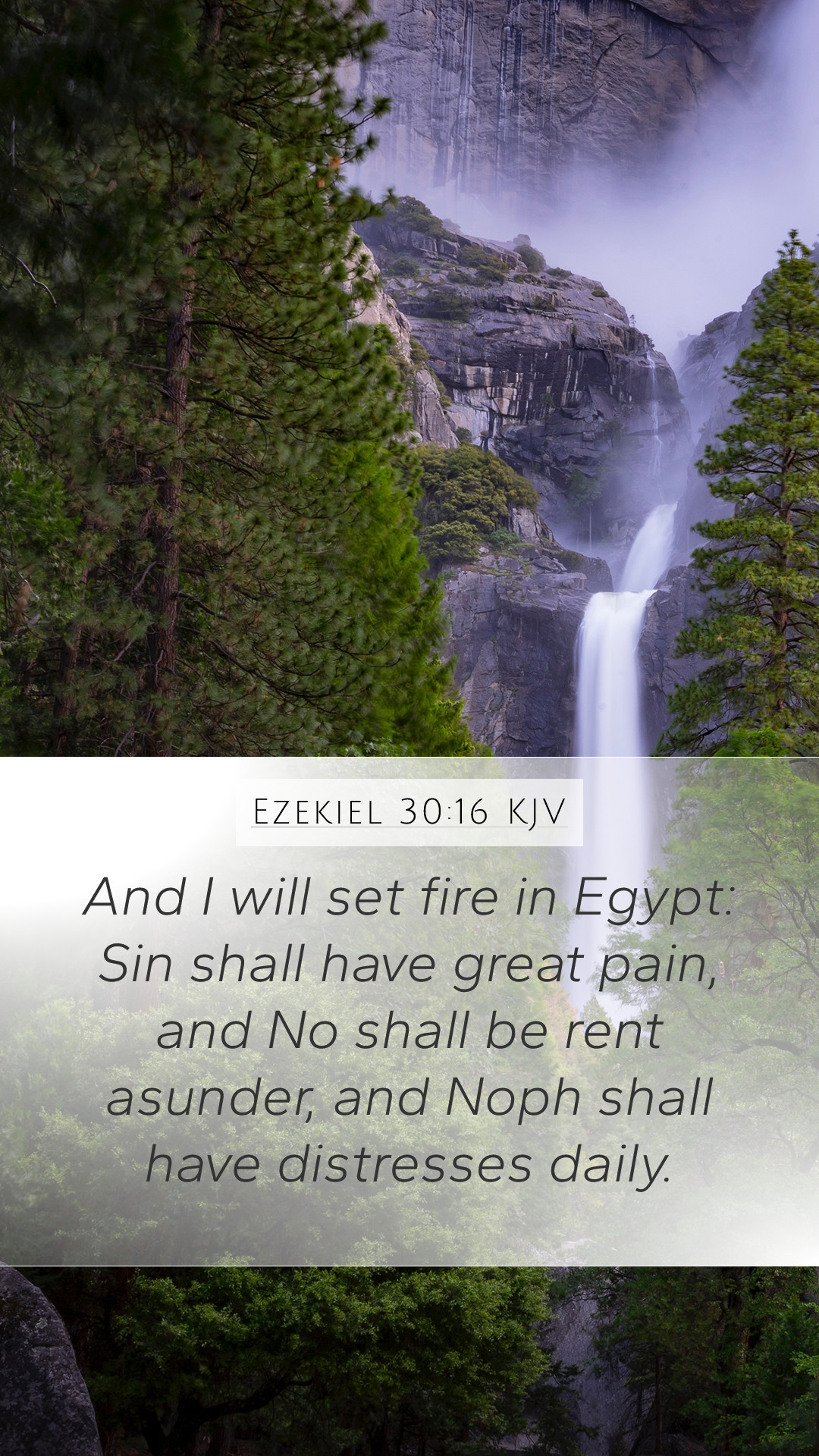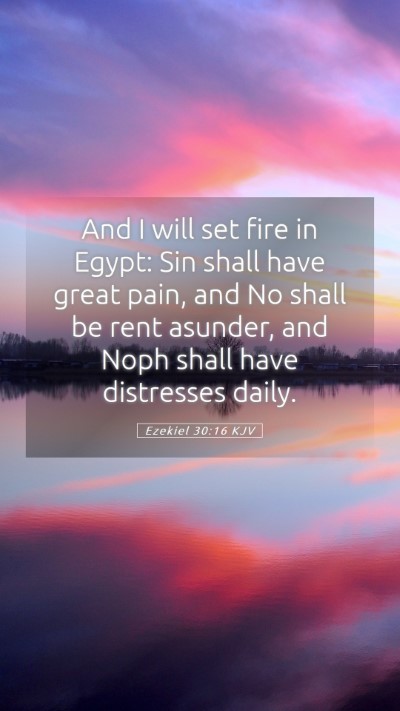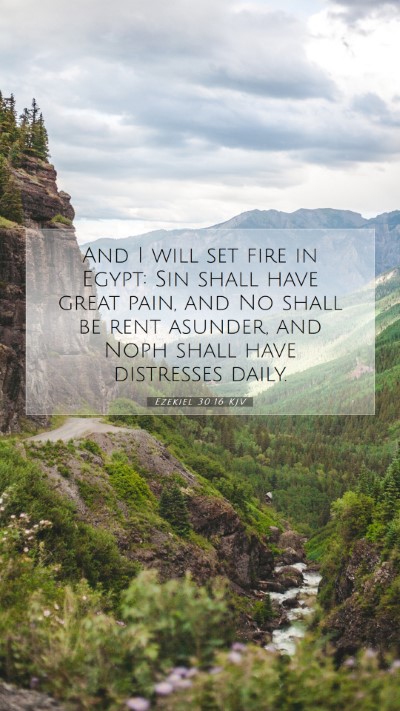Bible Verse Explanation: Ezekiel 30:16
Verse: Ezekiel 30:16 - "And I will set a fire in Egypt: Sin shall have great pain; and No shall be rent asunder, and Noph shall have distresses daily."
Overview and Context
Ezekiel 30:16 serves as a significant prophecy concerning Egypt, a nation often symbolizing oppression and idolatry within biblical texts. This verse embodies the divine judgment foretold against Egypt and highlights the impending desolation that will befall key cities like Sin (Pelusium), No (Thebes), and Noph (Memphis). The context of this prophecy is critical for understanding the broader narrative of God's justice and sovereignty in history.
Insights from Public Domain Commentaries
- Matthew Henry: Henry emphasizes the inevitability of God's judgment against nations that turn their backs on Him. He explains that the fire symbolizes destruction, which serves both as a warning and a testament to God's unfailing righteousness. The reference to Egypt's cities reflects the profundity of the impending calamity.
- Albert Barnes: Barnes notes that "Sin," "No," and "Noph" represent not only geographical sites but also the spiritual depravity of those who inhabit them. His commentary points to God's use of these calamities for the purpose of purifying His people and demonstrating the futility of idol worship, particularly in a nation historically known for it.
- Adam Clarke: Clarke offers a historical lens, suggesting that the fire signifies not just literal destruction but also the spiritual ramifications of turning away from God. He highlights how the inhabitants of these cities will face great distress, representing both physical and emotional suffering resulting from their rejection of divine truth.
Meaning of the Verse
The essence of Ezekiel 30:16 can be distilled into several key points:
- The fire represents divine retribution and the purging nature of God's judgment.
- The cities mentioned underscore the scale of devastation, illustrating that no place within Egypt will be exempt from judgment.
- The verse accentuates the idea that turning from God leads to dire consequences, and serves as a cautionary tale for nations and individuals alike.
- This passage encourages readers to reflect on their own lives and the importance of aligning with God's will to avoid similar calamities.
Cross References
- Ezekiel 29:8-9: A similar prophecy of judgment against Egypt, emphasizing the desolation to come.
- Isaiah 19:1: A prophetic declaration concerning judgment against Egypt, further exploring the theme of divine intervention.
- Jeremiah 46:25-26: Continuing the message of judgment on Egypt and the historical consequences stemming from their disobedience.
Application of the Verse
This verse can serve as a profound lesson for contemporary audiences on several levels:
- Personal Reflection: Individuals are prompted to evaluate their relationship with God and the pitfalls of idolatry in modern life.
- Community Awareness: It fosters a dialogue about national and cultural integrity, emphasizing the importance of collective adherence to righteous principles.
- Historical Insight: Helps believers understand how historical events influence spiritual realities and behaviors today.
Conclusion
Ezekiel 30:16 stands as a harrowing reminder of the consequences of straying from God's paths. It encapsulates themes of divine judgment while urging believers to heed the warnings illustrated through ancient prophecies. By engaging with this verse and its interpretations, believers can gain valuable Bible study insights that resonate with their daily lives.
Further Study Tools
Consider using Bible study materials and online Bible study tools to dive deeper into the historical context and spiritual significance of verses like Ezekiel 30:16. Topics of study can include:
- Understanding difficult Bible passages
- Applying Bible verses to daily life
- In-depth Bible verse analysis


